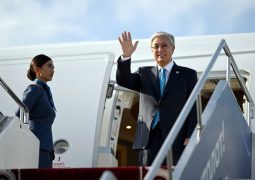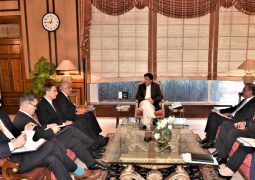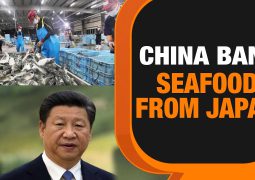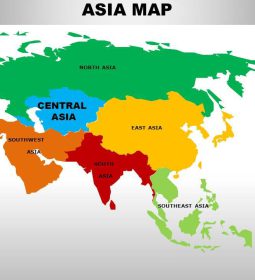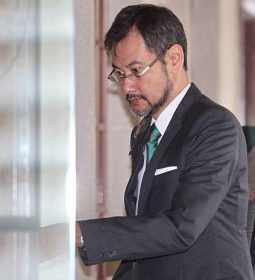Beijing’s Debt Trap to Astana or The Illusion of Chinese Investment in Kazakhstan

Concerns about how Chinese businesses operate abroad — and the challenges already confronting Kazakhstani entrepreneurs — have resurfaced following a recent letter to the prime minister from an association of oil service companies reporting price dumping. Despite these developments, Kazakhstani experts remain hesitant to discuss the negative effects of China’s growing influence in the country’s real economy.
Technological Dependence
The reluctance is unsurprising. Astana’s official policy seeks broad rapprochement with Beijing, spanning economic, political, and cultural spheres. Given the power imbalance, Kazakhstan avoids public statements that might offend its wealthier partner, particularly in the media, which China monitors closely.
As a result, the recent complaint by the PetroCouncil — an oil and gas association representing more than 150 domestic service companies — about dumping by foreign, mainly Chinese, firms has been met with silence from local experts.
In a letter addressed to Prime Minister Olzhas Bektenov, the PetroCouncil warned that foreign firms, particularly from China, have been offering services to major Kazakhstani enterprises at prices 60–70% below market value. This, they argue, is forcing out local businesses, reducing Kazakhstani content, eroding tax revenue and employment, diminishing engineering expertise, and threatening industrial safety.
We asked PetroCouncil Managing Director Daniel Zholdybaev why foreign companies have come to dominate Kazakhstan’s oil and gas sector and whether the competence of local personnel or service providers is a factor.
According to Zholdybaev, the dominance is rooted in how foreign operators first entered Kazakhstan’s market: by bringing their own technologies. This created long-term dependency not only on their expertise but also on foreign suppliers.
“Chevron, for instance, maintains a vetted list of approved suppliers, and wherever the company operates, it only works with those on that list,” Zholdybaev explained.

While Kazakhstan continues to develop domestic manufacturing capabilities, local firms are still barred from participating in high-risk operations such as work on wells with extreme pressure or temperature conditions.
Zholdybaev noted that Kazakhstan’s three major fields — Tengiz, Karachaganak, and Kashagan — account for 90 percent of oil and gas imports. The operators of these projects are mainly Western companies. Russia, due to international sanctions, plays only a marginal role in procurement despite maintaining a presence in Kazakhstan.
However, it is Chinese companies, actively welcomed by the state, that have introduced the issue of price dumping.
Chinese firms operating in Kazakhstan’s oil and gas industry maintain closed procurement systems, sourcing goods and services almost exclusively from Chinese suppliers. As a result, Chinese investment brings minimal benefit to Kazakhstan’s economy. Even construction contracts often return to China.
Russian observers, typically sensitive to Central Asia’s dealings with China and the United States, have also remained largely silent on this issue. A rare exception was political analyst Yuri Baranchik, who posted a sharply critical comment on his Telegram channel:
“This is a clear example of what happens when Chinese companies are allowed full access to the domestic market,” he wrote. “They dump prices to bankrupt local businesses, monopolize the sector, and then dictate terms. Now the Kazakh government must figure out how to support its own enterprises without alienating China.”
Parallel Tourism
Meanwhile, Almaty, the country’s economic hub, is promoting its latest tourism initiative. City officials project that 50,000 Chinese tourists will visit annually, based on an agreement signed by Akim Darkhan Satybaldy and the China Professionals-Workers International Travel Service Head Office (CPITS).
“According to preliminary estimates, Chinese tourists will spend around $1,500 each on lodging, dining, excursions, and shopping,” the Akimat stated. “This could generate an annual economic impact of approximately $75 million, boosting the local economy, service industry, and small businesses.”
However, the expected benefits may be less certain. Similar assurances were made in Russia, which became a major destination for Chinese tourists even before the pandemic, only to discover an illicit ecosystem that diverted tourism revenue back to China.
In 2017, Victoria Bargacheva, president of the St. Petersburg Association of Chinese Language Guides and Interpreters, detailed how an underground economy developed around unregulated Chinese tour operators. Speaking to Fontanka, she described how Chinese tourists were funneled into Chinese-owned restaurants and shops, bypassing local businesses entirely. Travel agencies allegedly paid for accommodations with undeclared cash, cutting out Russian taxes and leaving little revenue behind.
Tourists often exchanged no rubles at all, instead using yuan and circulating funds exclusively within Chinese-owned operations.
“The tourists consume services, but the money returns to Chinese companies,” Bargacheva said. “Even hotel stays are often arranged off the books, via bribed administrators.”
Today, similar signs are emerging in Almaty. Organized groups of Chinese tourists can be seen traveling in branded private buses and visiting newly opened Asian restaurants catering specifically to them.
Whether the 50,000 visitors will truly inject $75 million into the city’s economy remains uncertain, or whether the actual figure will be far lower, with much of the revenue diverted before reaching local businesses.
- Previous Kyrgyzstan Launches Gold-Backed State Stablecoin
- Next Miss Universe Pakistan Roma Riaz reminds – the sari is ‘as Pakistani as the shalwar kameez’





